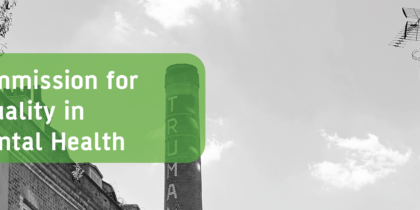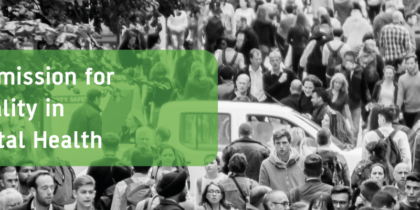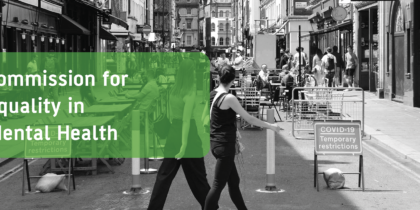By Richard France
I have spent a number of years in and out of psychiatric institutions from the age of 23, back in 1993 which I first became ill with clinical depression. At that time I had no idea what mental health was about and didn’t understand the process I was going through. As the Disability Discrimination Act didn’t come into force until 1995, there was no legal requirement to provide communication support for people like me who have hearing loss.
Despite suffering psychosis and being given strong medication, I had to rely on lipreading for all aspects of my treatment. This was very difficult for me especially being on a ward where other inpatients would think I was staring at them when actually I was lipreading, so this led to some aggression issues. I approached the Social Services for the Deaf where I was living and they simply refused to help me because they said I could speak.
until 1995, there was no legal requirement to provide communication support for people like me who have hearing loss
As an outpatient around 1994, I still had no support attending psychiatric appointments so this would be fraught with communication issues. Around this time I was visited by a Social Worker for the Deaf who promised to help me out but then went off sick the following day so all potential support ended here.
In 2000, I was sectioned in Hull but by luck, I was placed with a student on a placement study who could communicate in British Sign Language. This was lovely as I was able to relax and communicate my emotions and feelings especially with the medication being given. Communication improved between this placement student and the ward staff so they were able to understand me better.
In the intervening years, I had a number of hospital admissions, both in the UK and in Spain.
it was the first time in my 22 years of psychiatric treatment that I felt safe, calm and able to communicate in sign language.
In 2015, I had a crisis and was unable to find anyone to support me through this and led to a suicide attempt that resulted in life changing injuries. I ended up in hospital after which I was sent to the Bluebell Ward at Springfield University Hospital in Tooting, London. This is a specialised deaf psychiatric ward and it was the first time in my 22 years of psychiatric treatment that I felt safe, calm and able to communicate in sign language. All the medical staff use sign language and I was able to have Cognitive Analysis Therapy (CAT) with my psychologist who was fluent in sign language. I undertook this treatment for 4 months then after being discharged, I was referred to my local CMHT with the support of the Bluebell Ward Deaf Adults Community Team (DACT – who work with outpatients) and eventually discharged.
This year in July, due to the lockdown and job circumstances, I had to contact my CMHT locally. After the first consultation, they have agreed to follow up the next appointment via video link with a CPN from the Bluebell DACT team.
if my communication needs had been met from the first time I had contact with psychiatric services, I wouldn’t have had so many incidents nor been sectioned as much as I have
I do feel that if my communication needs had been met from the first time I had contact with psychiatric services then I wouldn’t have had so many incidents nor been sectioned as much as I have. I find that even now, my peers with mental health issues still state that communication is the number one issue affecting all deaf people accessing psychiatric services.
This is what I do with my work which is to campaign for greater awareness on the importance of getting the communication right regardless of language preference, and to raise awareness that since the Accessible Language Standards Act was started back in July 2013, medical teams are still not aware of its importance. I am currently in discussion with the Cardiology Department due to a recent illness however they still continue to telephone me even though I have been registered as Profoundly Deaf since birth.
For more information on mental health and wellbeing support for Deaf people, check out SignHealth.







